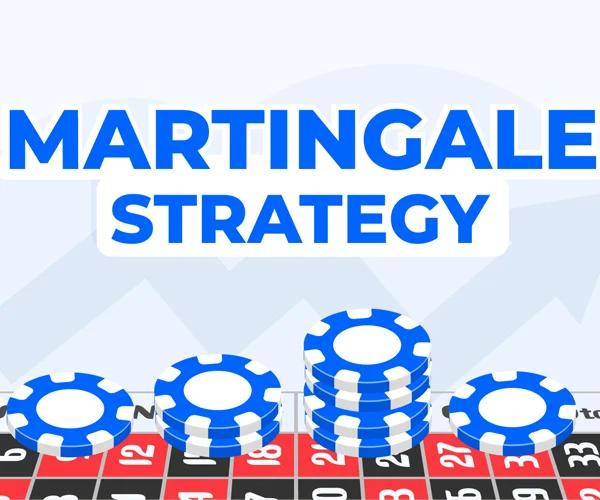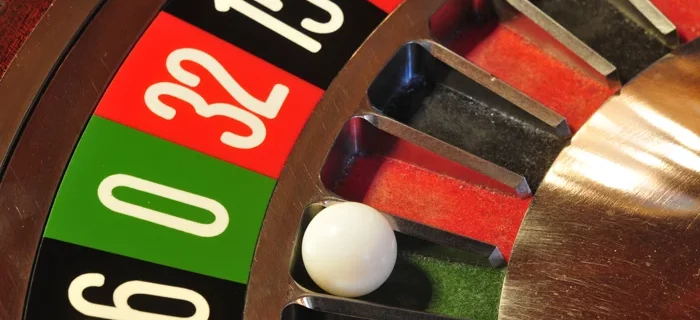Roulette, with its rich history and popularity in both online and land-based casinos, captivates many players worldwide. Its appeal lies not just in its thrill but also in its accessibility and the multiple strategies available to better your winning chances.
Table of contents
This article unravels some top strategies employed by seasoned players, offering insights and actionable steps to potentially tip the odds in your favour.
Martingale explained
Among the realm of roulette strategies, the Martingale system stands as a towering titan. This method, characterised by its daring progression, revolves around the art of bouncing back from losses.
The foundation is simple — increase your bets after each loss, aiming to not only recoup previous deficits but also secure a profit.
- Start Small: Begin by placing a small initial bet on even-money outside bets (like Red, Black, Even, or Odd).
- Double Up After Losses: If you lose, double the bet. The idea is to recover your loss and gain a profit with the subsequent win.
- Return to Initial Bet: Once you win, revert to your initial betting amount.
- Risks: Remember, while the Martingale System may seem logical, it's risky. You could end up losing significant amounts if you hit a losing streak.

Additional Point: The Martingale system also demands a sizeable bankroll. Make sure you can endure multiple losses before a win.
Martingale is a high-risk roulette strategy best suited for those keen on maximising session profits but willing to risk significant losses.
The strategy involves doubling bets after each loss.
Whilst effective in theory, real-world limitations like table maximums and personal budgets can impede its success. If you're prepared for rapid losses amidst the quest for quick gains, it's an option.
However, you could face inevitable losing streaks that deplete your funds.
D'Alembert Explained
If the Martingale's high-stakes drama isn't your calling, the D'Alembert strategy offers a gentler path to potential victory in online roulette games. Much like its predecessor, Jean le Rond d'Alembert came up with a system that revolves around even-money bets, but with a twist. Instead of doubling stakes post-loss, this system adds a single unit to the player's stake.
- Set a Base Stake: Start with a base stake, say £1.
- Increase After Loss: If you lose, increase the wager by one unit, making the next bet £2.
- Decrease After Win: After a win, reduce the stake by one unit. For instance, if you win the £3 bet, your next bet drops to £2.
- Benefits: Unlike Martingale, the D'Alembert strategy poses less risk, making it suitable for players with a smaller bankroll.

Leonardo Fibonacci
The Fibonacci System Explained
Stepping into the realm of the Fibonacci system is akin to embracing the rhythm of a sequence brimming with potential. Anchored in the renowned Fibonacci sequence – a numerical melody that echoes through various facets of nature and science – this strategy adds a layer of methodical progression to your roulette endeavours:
- Follow the Sequence: The Fibonacci sequence goes like this – 1, 1, 2, 3, 5, 8, 13… and so on.
- Bet Using the Sequence: Your bet amount should be the sum of the last two bets.
- Reset Upon Winning: Once you win, start over with the initial numbers in the Fibonacci sequence.
- Safety First: This system is considered safer than many other progressive strategies.
Additional Point: Fibonacci tends to be a middle-of-the-road strategy, offering moderate risk and reward.

Which Strategy is the Best?
When it comes to Roulette strategies, one size doesn't fit all. While the Martingale System might be popular for its straightforward approach, it also comes with considerable risks.
On the other hand, the Fibonacci System provides a safer avenue, but the wins might be slower. The D'Alembert stands somewhere in between.
Your choice should depend on your risk appetite, budget, and the experience you seek.
As the roulette wheel spins, players around the world hold their breath, hoping for a win. By understanding and implementing the right strategy, you can potentially enhance your chances at the table.
Whether it's the Martingale, D'Alembert, or Fibonacci, the key is to be informed and play responsibly.





